Spanish and Portuguese in the Year Abroad
The third year of the tripos is spent abroad. Our students typically either study or work in a Spanish or Portuguese speaking country. During this time, they undertake research for a Year Abroad Project. This is either a translation project or a dissertation.
Here are some testimonies from our students about their amazing Year Abroad experiences.
- Alice Hodges, Brazil 2024
- Doa Acikgun, Argentina 2023-2024
- Elizabeth Bratton, Uruguay 2023
- Christopher Robinson, Brazil and Mozambique, 2017-2018
- Sofya Boruleva, Chile 2023
- Tom Daniels, Spain 2022-2023
- Will Kirby, Spain 2020
- Melody Lewis, Argentina 2024
- Hebe Jackson, Mexico 2023-2024
- Harry Andrews, Brazil 2024
I was lucky enough to spend my year abroad studying at the Universidad de Buenos Aires in Argentina. When I found out that I could apply to any faculty at the university and take practically any of the courses that were on offer, I decided to use this opportunity to explore some of my other interests beyond languages and literature; so I applied to the faculty of social sciences and was fortunate enough to be able to borrow papers from both the Sociology and the Political Science courses. This was an incredible experience, as I was able to study in an academic environment what I had only until then explored through my own limited personal research and reading. Some of my highlights include a class on the intersection of photography and sociology, which taught me the important social and political function of photography and provided invaluable information from a research point of view as my YAP was on the photographic representation of state violence in Argentina. I also took a class which analysed the impact of technology on society and the work force, a topic I had very little knowledge of when I began the course but enjoyed thoroughly as it was taught by a group of expert researchers who are truly at the top of their field when it comes to employment and technology studies.
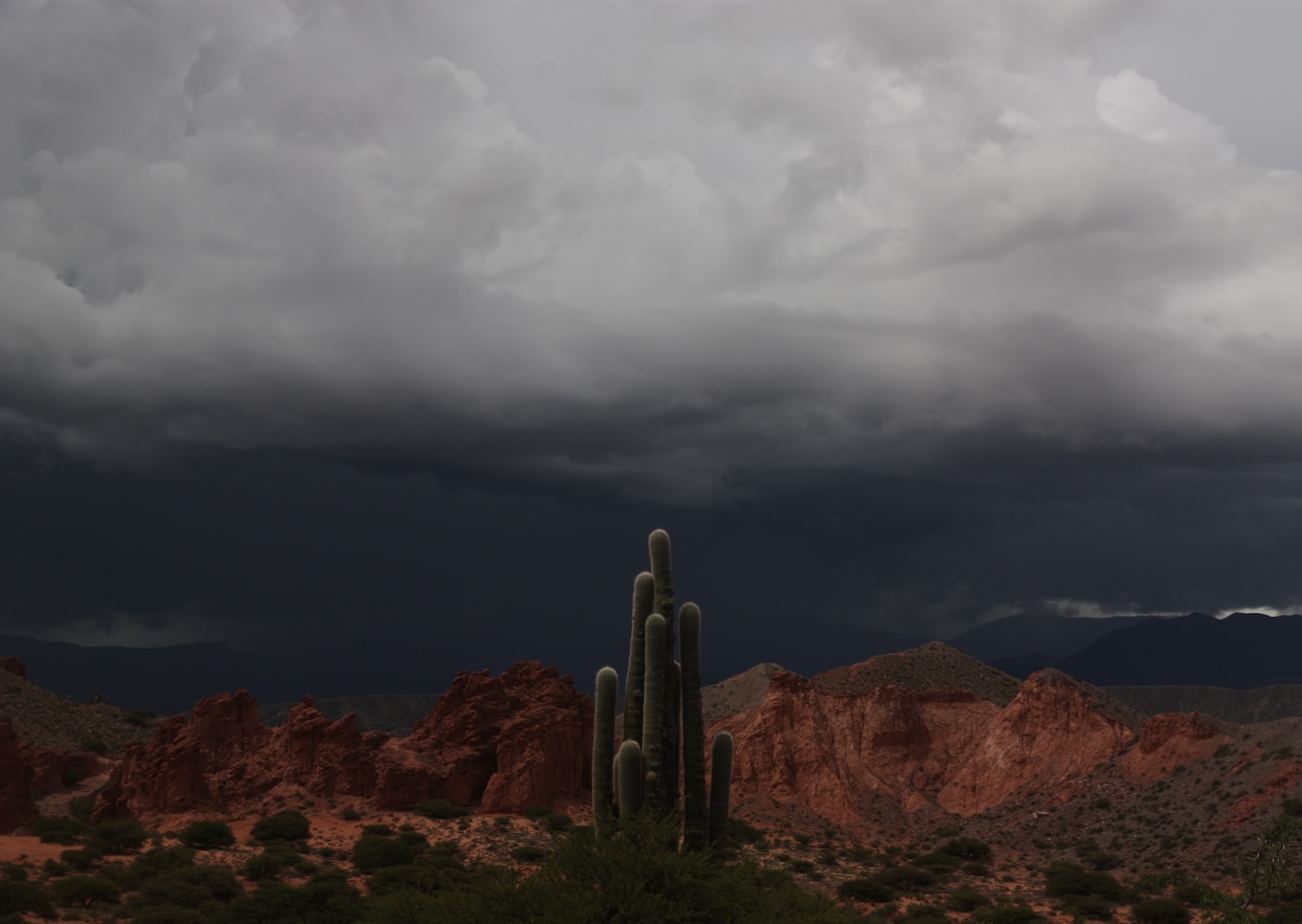
Beyond academics, living in Buenos Aires for a year was an amazing experience. I don’t want to sound cliché, but I genuinely believe that my year abroad was one of the best years of my life. I made such lovely friends, a lot of whom I am still in contact with and am planning to see again over the summer, and I got to see such a beautiful part of the world through my travels. My highlight would be a road trip I took with a friend from the faculty; driving in Argentina is definitely not for the fainthearted but it allowed us to see such wonderful parts of the provinces of Salta and Jujuy up in the north of the country. The desert landscape is such a contrast to the tropical forests of Iguazú and the icy glaciers of El Calafate, and I was lucky enough to witness all of them!
I took this photograph in the province of Jujuy in Argentina, at La Quebrada de las Señoritas, a red rock desert with beautiful landscapes and rock formations throughout. I was on a road trip through the provinces of Salta and Jujuy with a friend I had met at university back in Buenos Aires. We went to the region during the wet season which meant lots of rain and flooded roads. As we were hiking through the desert, we could see this storm approaching. It felt quite ominous to me, being out in the open desert with a big, dark cloud approaching, and that feeling, coupled with the beautiful contrast between the bright red of the rock and the blueish-grey hue of the storm cloud prompted me to take this photo.
I had the best time in Argentina and will cherish the memories and friends I made while studying there!
I spent the first half of my year abroad studying that the Pontifical Catholic University in Santiago, Chile for five months. My classes were very broad and included Anthropology and Archeology, Modern Latin American History and Philosophy. Studying on the main campus sit at San Joaquin allowed me to catch a glimpse of the Andes mountains every day, take part in dance classes, feed food waste to insects to produce compost as part of the university’s environmental society, fundraise in events like the 10K run or participate in faculty competitions (like table tennis, karaoke and dress up with the social sciences faculty).
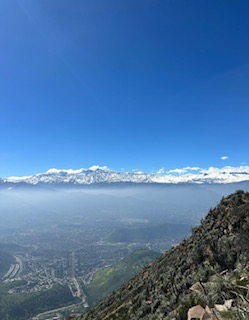
With all the lovely people I met I was able to go on trips to different countries across South America and do a lot of hiking. I fulfilled my dream of trekking the Inca trail to Machu Picchu, did the W Trek in Patagonia and hiked many of the mountains around Santiago. Despite some close calls with phone theft in the capital centre, I felt very safe to solo travel in Chile and this definitely helped me to build confidence and improve my language.
My stay in Santiago coincided with the 50th anniversary of the coup d’etat and I wanted to document the historical and social changes that have happened since. I made a small documentary in Spanish, interviewing the Head of the Museum of Memory and Human Rights, a politics professor and a human rights lawyer. It was an amazing experience that allowed me to understand more about Chilean history and made me very appreciative of the current freedom of expression that could be seen in many artisanal fairs, the Fiestas Patrias on the 18th of September and the many manifestations and protests, especially when it came closer to the elections, which took place on the day that I left to return to the UK.
I’ve nearly finished my 5 months of study in Rio and it’s been everything I hoped for and more. Despite being incredibly different to anywhere I’ve visited before, and worlds away from the calm of Cambridge, it’s amazing how quickly you can adapt. This is especially true within the university framework - I really credit the international students’ team at PUC for helping me settle in. For the first month, I did an intensive language course provided by the university, which was invaluable for solidifying my language skills and helping to set up a routine. Through this I met a great group of international students, and together it was easy to explore everything the city has to offer. We even travelled to the Amazon together in the semester break.
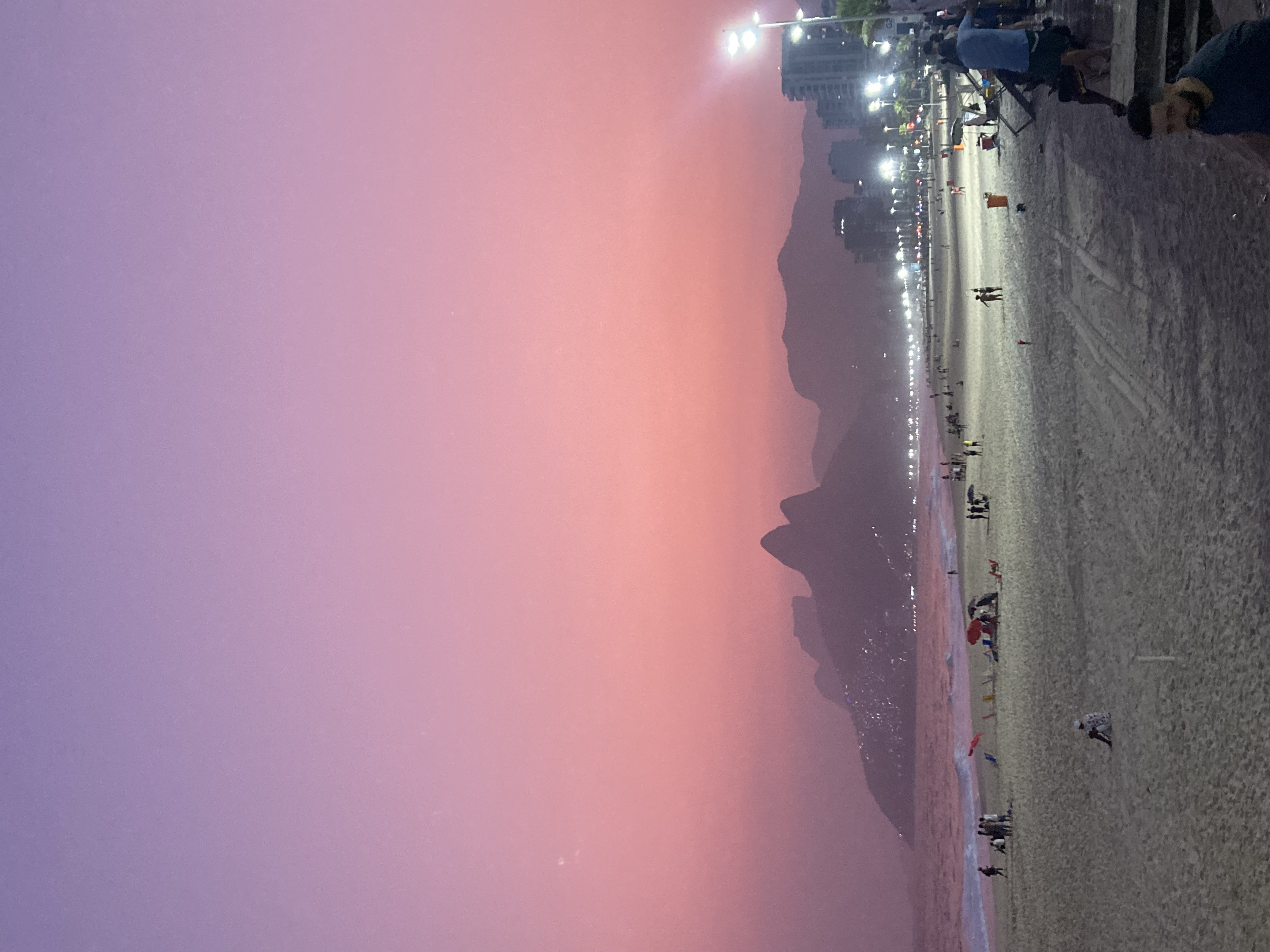

It’s overwhelming at times just how much is going on in Rio, but the sunny climate and laid back pace of life make it possible to find a very enjoyable balance. I hadn’t realised what a privileged location Rio has in terms of nature, and the opportunities to hike have been brilliant.
A highlight for me has been getting involved in a project called ‘Favela bilíngue’, getting to give English lessons in Morro da Providência, the city’s oldest favela. Further opportunities to travel outside of Rio are endless - the lighter workload and cheap flights allow for long weekend trips all over the country. Brazilians are very approachable and keen to help you improve your language - I lived with an elderly woman in the homestay programme who spoke no English, which was a valuable (if quite intense!) opportunity to accelerate my conversation skills. Overall, studying in Rio has been an incredibly rewarding challenge so far and I cannot recommend it enough.

My name is Elizabeth Bratton; I study German and Spanish at Gonville and Caius.
I spent an amazing six months working for "la diaria" newspaper in Montevideo, Uruguay. I learnt so much about Rioplatense Spanish, about Uruguayan culture (including mate, alfajores, and fernet!), and enjoyed living in an absolutely beautiful city.
I was fortunate enough to live a 30-second walk away from "La Rambla": a stunning 22-kilometre coastal path which stretches along Montevideo's beaches. I spent a lot of time running and watching sunsets there, often combining the two. I have never seen such consistently beautiful sunsets anywhere else in the world!
Working at "la diaria" was a fantastic opportunity for me to develop my Spanish and to gain significant experience in the journalism industry. My colleagues and I spoke Spanish to each other 100% of the time, and I wrote daily news articles in Spanish too: the improvement I saw in my language skills was both quick and significant. I had really friendly, sociable colleagues who introduced me to other Uruguayan traditions, such as “murgas”, and with whom I was able to practise my Spanish. I am still in contact with many of them today.
Rioplatense Spanish was certainly tricky at first; hearing words like "playa" pronounced as "plasha" was a difficulty I was aware of but had significantly underestimated! There were also some vocabulary differences ("frutilla" for "fresa" and "pollera" for "falda", for example) which took me a while to get my head around. The first few weeks were undoubtedly a challenge for my listening skills, but I eventually picked up the new pronunciation and vocabulary (including essential slang like "che", "bo", and "boludo"!)
I travelled around Uruguay a bit, too. My favourite place was a small village called Cabo Polonio, which is only accessible via a long walk through sand dunes or a very bumpy trip in a 4x4 jeep, which you can sit on the roof of. It is also home to lots of sea-lions and is a good place for whale-spotting (apparently...).
I also took the ferry across to Buenos Aires a few times: a city which is well worth visiting - especially La Boca and the San Telmo market. I was also fortunate enough to visit Ushuaia, which is about as far south as you can go in the world, apart from Antarctica. The lagoons, mountains, and penguins (of course) were absolutely stunning.
My photo was taken during the annual Montevideo "March for Diversity", which is the equivalent of Pride in other countries. I had stumbled across it by accident, and decided to follow the crowds out of curiosity. It was both a lively, joyful occasion and one marked by sombre reminders of the struggles of the LGBT+ community.
Following my six months in Montevideo, I moved to Hamburg for three months, where I worked in documentary production.
Elizabeth won the 2024 Year Abroad Photo Competition, in the 'Places of Interest' category, for her photo 'La Marcha por la Diversidad'.

Photo credit: Christopher Robinson, Football training session in Mozambique
My name is Chris, I’m from Belfast and I studied Spanish and Portuguese here in Cambridge from 2014 to 2018. What caught my eye about this course was the year abroad and, in particular, the freedom students have to mix and match different activities, locations and languages. I chose to focus on Portuguese and split the year between studying in Brazil and volunteering in Mozambique.
In Brazil, I spent one semester studying history and social sciences at a university in Rio de Janeiro. The Cidade Maravilhosa, or Wonderful City, is just that and much much more. There are few places in the whole world where you can attend classes in the morning, relax on the beach in the afternoon and watch a live football match in the evening. Believe me Rio is one of them! There were only a handful of foreign students at my university so the immersion was intense but great for developing language skills. The language learning didn’t stop outside the classroom - to this day, I think I owe my listening skills to the lively fans in the football stadiums!! And of course the excellent teaching at Cambridge and the local university.
In Mozambique, I spent three months volunteering at a local football academy on behalf of Arsenal Football Club. The opportunity originated from a guest lecture in Cambridge, which I had attended in second year. While the lecture was primarily focused on the great work Arsenal does to promote language learning in North London, it also showcased a development programme for coaches seeking to apply their skills at partner projects all over the world. One of those projects was in Manica - a small province in central Mozambique, approximately 20 miles from Zimbabwe. As it transpired, the language barrier had posed challenges in the past so the Club thought it would be helpful for me to join its representatives as an interpreter, facilitating the delivery of academy training sessions, community football and English language classes. Very quickly, I found myself using that same vocabulary from the Brazilian stadiums to give instructions to Mozambican players on a clay pitch in Manica. It is true there were less beaches but the next three months were spent in the now familiar settings of classrooms and football pitches. It was fun and rewarding to support with English and IT teaching and, on the football side, we had an exhilarating underdog cup run, which ended in defeat to a professional side from the neighbouring city of Chimoio. As inspired as I had been by our players’ performances, it wasn’t long before I had to settle for second XI college football back in Cambridge!
Maita Basa, Moçambique. Obrigado, Brasil. And thank you to Cambridge for supporting us along the way!
I started my Year Abroad in October 2022, working as a Language Assistant for the British Council. Having been placed in a secondary school in a great area of Madrid, I was admittedly quite lucky with my post, but nonetheless felt incredibly supported by the school throughout the year. Settling into life in Madrid came very naturally, and I have gained incredible friendships with people from all aspects of my Year Abroad experience. While working offers a different pace of life to studying, I would hugely encourage anyone to make the most of the British Council’s program and the opportunities they offer – the skills I have developed in the role will, I’m sure, serve me well in future. In my experience, I felt immediately valued as a member of the team, and the job, although at times a touch overwhelming, was incredibly rewarding.
I studied Spanish and Arabic, so, like other students of AMES and MMLL, a requirement for my year abroad was to spend eight months in an Arabic-speaking country. Having studied both Spanish and Catalan language at Part I, I also wanted to improve my abilities in these languages (and particularly in Catalan). I chose to spend September to December of my Year Abroad in Barcelona, where I completed an internship for the Institut Ramon Llull and volunteered for the Comissió Catalana d’Ajuda al Refugiat (CCAR). At both organisations, the main language that I used to communicate with my colleagues was Catalan and I was based in their communications departments. My main responsibilities at the Institut Ramon Llull involved writing and translating press releases and drafting posts for the institute’s @CatalanCulture account on Twitter/X to promote Catalan culture to English followers.
My Year Abroad took place during the COVID-19 pandemic, so my experience of living in Barcelona wasn’t exactly typical. Navigating the changing restrictions at the time — a nightly curfew, and the closure of restaurants, bars, and shops — was a recurrent feature of my experience. Nevertheless, I found the opportunity around these restrictions to explore some more of Catalunya, which included taking the rack train up to the monastery atop Montserrat and walking round the beautiful mountain range there, as well as a day trip to Catalunya’s gorgeous second-city, Girona. I also found plenty of chances in and around the restrictions to sample some of the delights of Catalunya’s many great restaurants and wineries. Christmastime arrived towards the end of my time in Barcelona. The shimmering lights above and along Passeig de Gràcia, the Santa Llúcia Christmas market, and the cosy atmosphere that filled the (recently reopened!) bars made this time of year particularly special in the city. For those looking to improve their Catalan in Barcelona, be warned: it can be a challenge to regularly get to speak Catalan there, and you have to make more an effort to do so than you would in some other parts of the Catalan-speaking world, but it’s more than doable. Finding an internship at an organisation where Catalan is used as the primary language is an excellent way of making sure you have the chance to use and improve your Catalan. Another plus of choosing Barcelona for students of Catalan is that its cultural and intellectual offering in Catalan (theatre, music, talks, bookshops, festivals etc.) is impressive — it’s a very lively scene all year round!
After my time in Barcelona, I spent the rest of my Year Abroad in Alexandria, Egypt, studying Arabic at a language school there. All in all, it was a wonderful experience: I made life-long friends, I got to know the cities, cultures and languages very well, and I had the chance to approach new challenges and push myself out of my comfort zone (while having plenty of fun along the way!).

Photo credit: Melody Lewis, Ushuaia, Argentina
Studying in Argentina was perhaps one of the best experiences I've ever had. It opened up my eyes to a world outside my rather small experience of Europe, and helped me understand a language and culture that had previously seemed so far away and intangible. The dialectical differences were challenging at first, but eventually it became easier, and everyone I met was so happy that I was learning Spanish that it made it really easy to get the practice in. Argentina offers a wealth of opportunities for travelling as well as studying, and I managed to fulfil a lifelong dream of visiting Ushuaia - the city at the end of the world - and experience an (almost) Antarctic winter and all the wildlife and nature that came with it. Studying in Argentina for my year abroad was an experience I will never forget, and I highly recommend it to anyone who wants to adventure a little further afield.
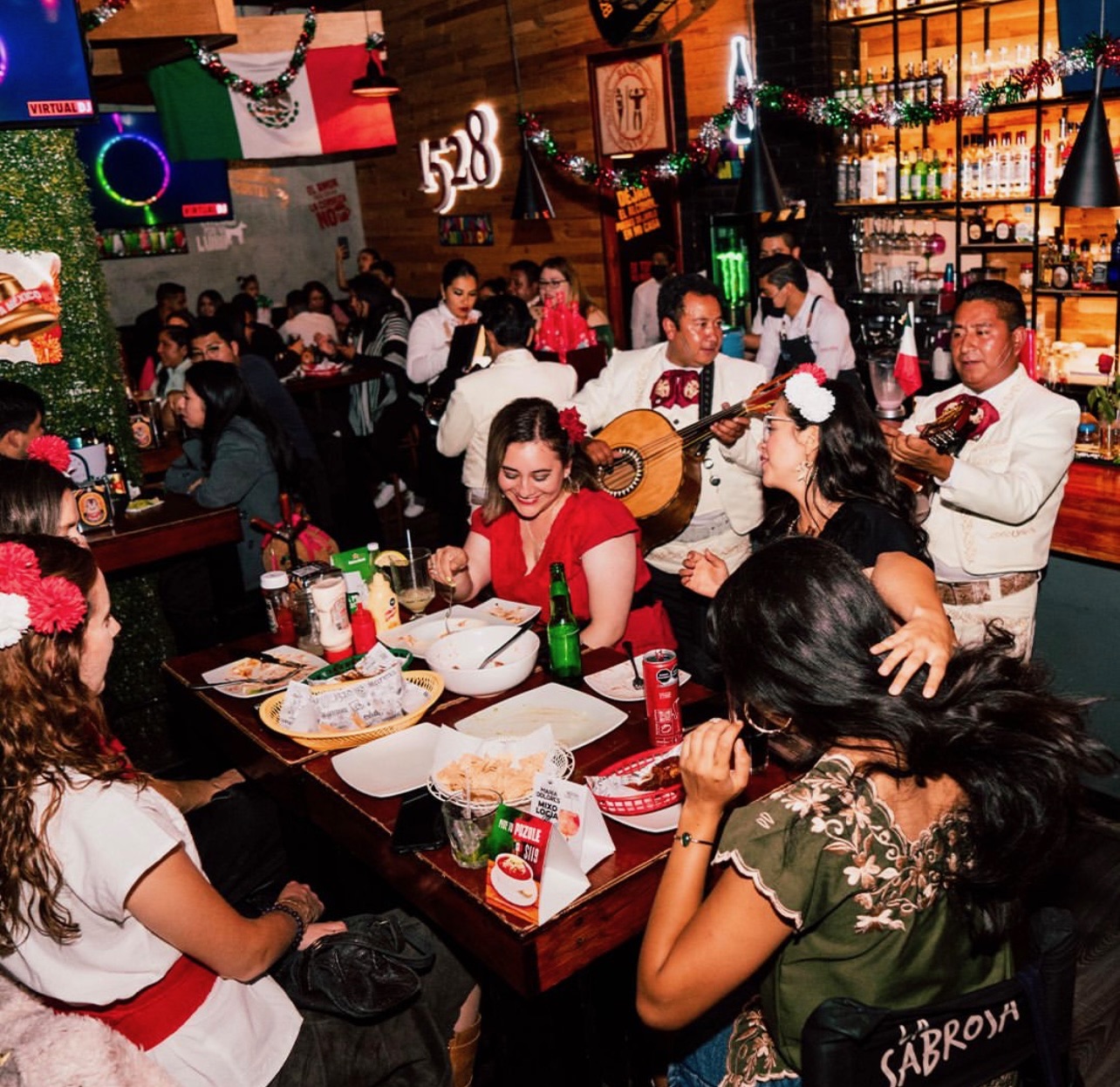
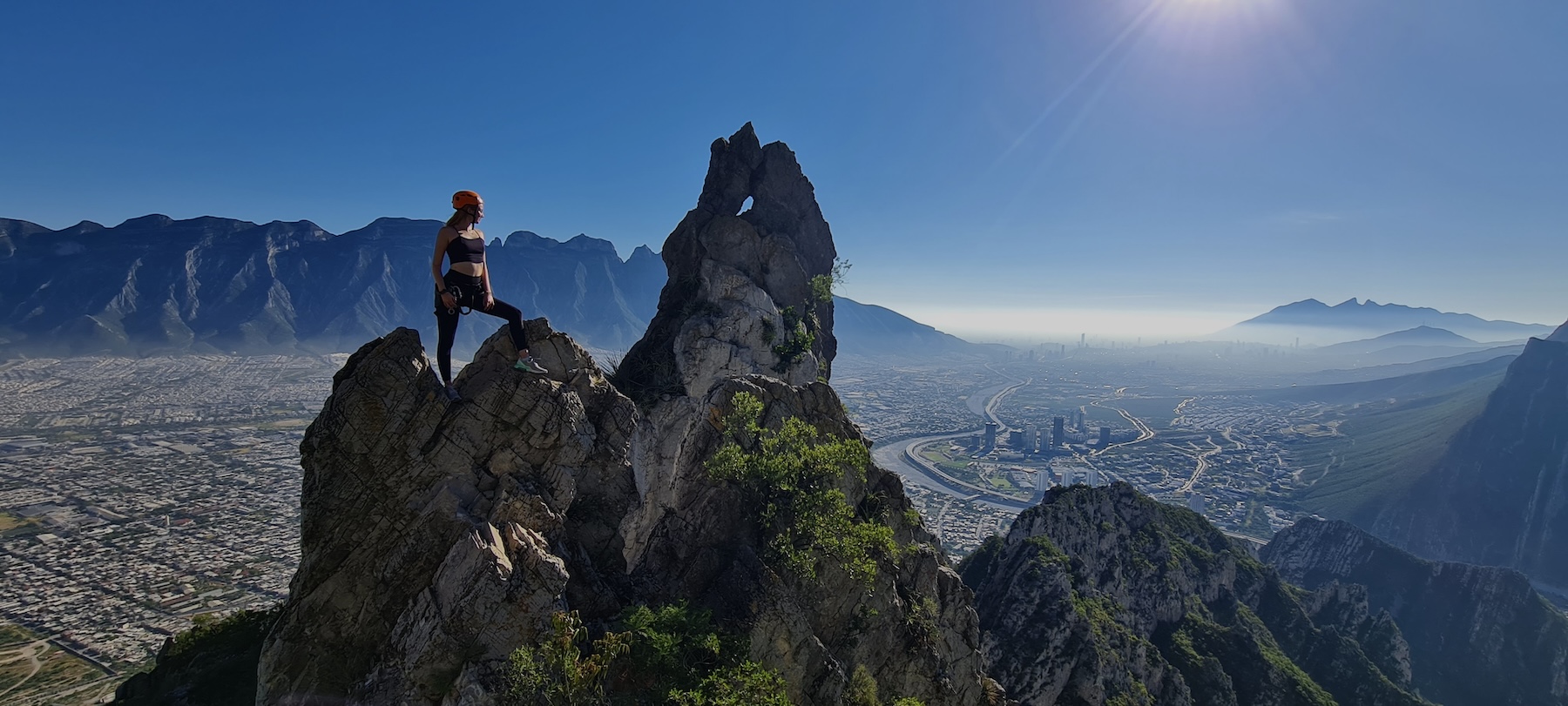 The celebration of Mexican Independence was a dizzying mix of music from the mariachis and tequila passed around the table, culminating in the 11pm ‘grito’ when the municipal presidents of cities across the country stand out on their balconies and recite a shout of patriotism loosely based on the original call to arms by Miguel Hidalgo that triggered the War of Independence. It was a real privilege to be a part of the celebrations, which marked both the beginning and end to my Year Abroad in Mexico as I was there in both September 2023 and 2024. I couldn’t not capture it in a photo.
The celebration of Mexican Independence was a dizzying mix of music from the mariachis and tequila passed around the table, culminating in the 11pm ‘grito’ when the municipal presidents of cities across the country stand out on their balconies and recite a shout of patriotism loosely based on the original call to arms by Miguel Hidalgo that triggered the War of Independence. It was a real privilege to be a part of the celebrations, which marked both the beginning and end to my Year Abroad in Mexico as I was there in both September 2023 and 2024. I couldn’t not capture it in a photo.
Monterrey was one of the places I visited that most surprised me. Having been told that it was ‘just an industrial city’ with ‘not much to do,’ I had arrived in Monterrey to visit a friend for the weekend, travelling from the southernmost point of Mexico, where I had been based during the Year Abroad, to the northernmost. I wasn’t expecting much but was absolutely stunned by the landscapes. As an avid climber, I had to get myself to the top of the mountains that break out from the cityscape. The views were just breath-taking and it felt like a very special moment to reflect on how travelling to places people don’t necessarily sing the praises of, may really be worth your time.
Most of my year abroad was spent in Rio. I arrived in mid-February (in the middle of Carnaval) to Barra de Guaratiba, a small neighbourhood to the west of the city. I came to intern at the Sítio Roberto Burle Marx, a cultural site that was once the home of the renowned artist and landscape artist it is now named after.
Before arriving I didn’t really know what to expect, having never been to Brazil and only really knowing about Rio’s most famous areas. The Zona Oeste is the largest but often forgotten sector of Rio, and while pretty far away from the city’s most defining features like Christ and Sugarloaf the area is anything but lacking in beauty. Barra de Guaratiba is tucked away to the south of this region, located between forested hills, lush mangroves and several beaches.
The Sítio was a great work environment, with lunchtime fofoca especially helpful to my Portuguese. It’s hard to describe exactly what the place is, being part museum, part garden, part art collection, but it’s definitely a must-see for anyone who visits Rio (along with Ana and Luciano at Siri Pizzas, who became a second family while I stayed with them above their restaurant). I’d ended up at Sítio after choosing to write about Burle Marx’s landscaping in my Year Abroad Project, an analysis that was really enriched by this daily immersion in his work and legacy.
I’d originally planned on only staying a couple of months before moving to a busier part of the city, but quickly fell in love with the Sítio and its surrounding area and stayed until a few weeks before the start of term. Life in Barra de Guaratiba is slower paced than in other more urbanised areas, punctuated by a welcoming and casual atmosphere that makes anyone feel at home. There are few other places where you can leave work and within an hour be at a churrasco on the beach with a caipirinha in hand.
I will be forever grateful to Barra de Guaratiba for the time I spent there, which in no exaggeration has been life changing. I’m planning to relocate to Rio after graduation, already thinking of the beach churrascos to get me through in the meantime.
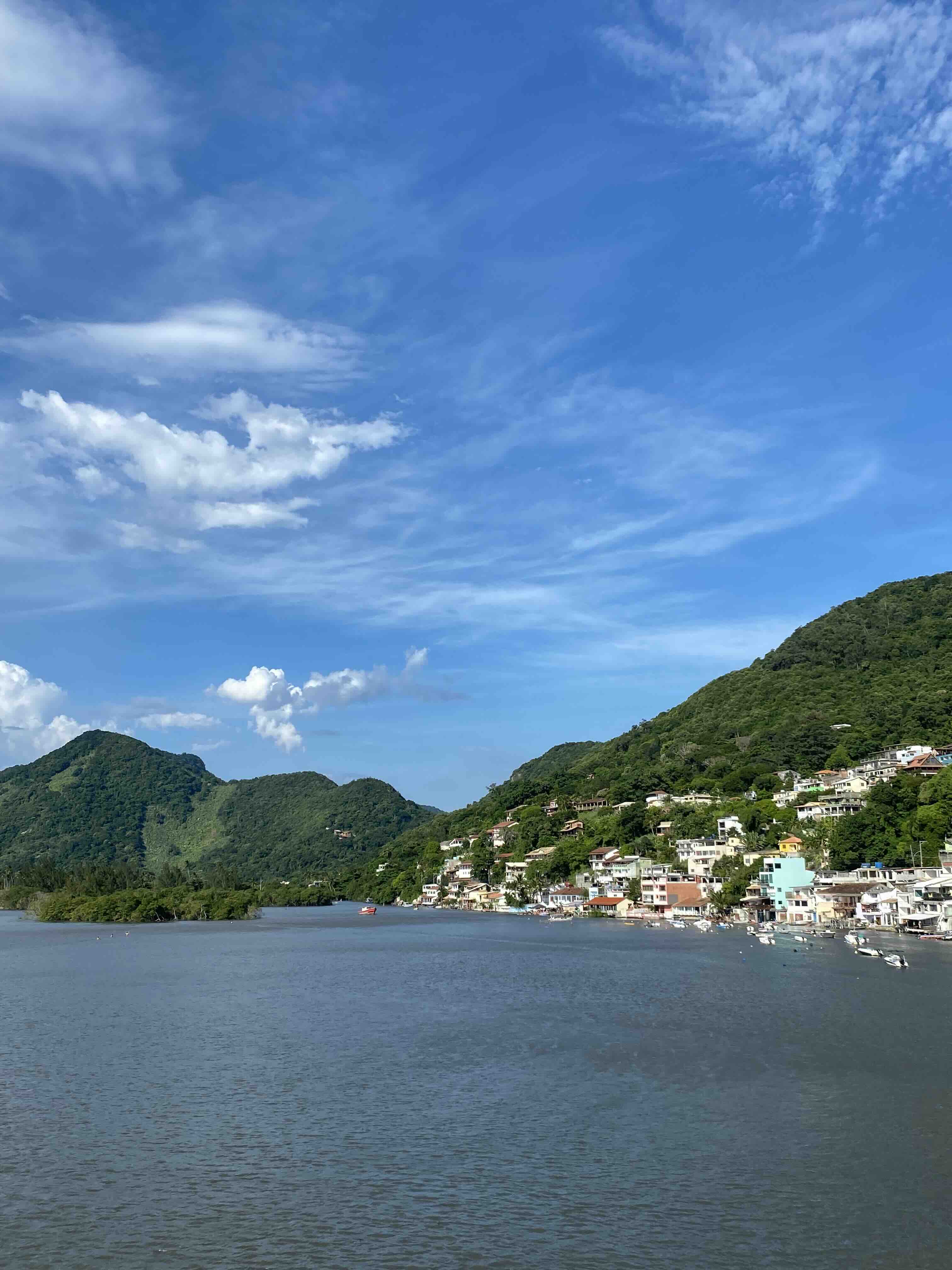
The following links are to videos showcase photos taken by Spanish and Portuguese students for the MMLL Year Abroad Photo Competition 2022.


